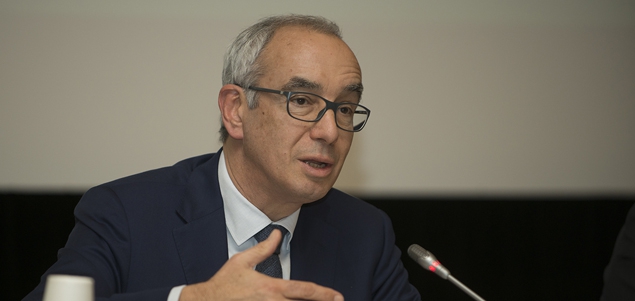
Commissioner-General Jean Pisani-Ferry discusses below the scope of the project, what it aims to achieve and its reception so far by policy makers, academics and members of the general public.
How would you describe the 1727 project?
Jean-Pisani Ferry: Essentially, it’s a contribution to quality debate on important issues for French society in the run-up to the presidential elections. Our role as a public institution is to provide a platform for informed discussions on policy options. So we thought it would be appropriate for us to put a number of issues on the table, so to speak, in a strictly non-partisan way.
We point out which issues are important, and in some cases we go further by stressing if the country needs to improve in a certain area or address specific problems. How to go about this and who should pay for it – that’s a matter for political choice.
For example, we argue that France underinvests in education. As an advanced country whose economy relies on skills and innovation, it should spend more on schools – especially primary schools – and universities. Who should pay for this is another matter, one to be decided through the political process.
It’s not an easy exercise. The question is where do you draw the line between what experts say and the political choice that has to be made. But we have set ourselves the goal of doing it in a fair and non-partisan way, and I think the result has been appreciated so far. That doesn’t mean everyone agrees with us, but no one has accused us of taking sides or not making a genuine contribution to the policy discussion.
What exactly does it entail?
JPF: For each of the thirteen topics we publish a discussion note presenting our assessment outlining policy questions and in some cases proposing different options. There is then a call for written contributions, followed by a public debate on the issues. In this way we are exposing ourselves to outside criticism. There will then be a second set of papers published, drawing on the debates and going one step further, outlining concrete options that can then be debated politically. There has been wide coverage of the notes in the media.
Could you tell us about the genesis of the project?
JPF: The starting point was us asking in what way we can contribute in the run-up to the elections, given as a public institution there’s a period beginning in January 2017 where we will no longer publish on sensitive election issues. We felt there were several important criteria. First, our initiative had to be undertaken early, before the political debate dominates everything. Second, it had to be non-partisan. Third, it had to be based on solid evidence. And fourth, we thought that it should be with a ten-year horizon because a five-year period is much more determined by what can be delivered in one term in office. We learnt from the work we did two years ago on the report France in Ten Years (Quelle France dans dix ans ?) that a ten-year period allows you to consider actions that are important but don’t deliver in the short term.
What has the reaction been so far?
JPF: So far the reaction to our fact-based, non-partisan approach has been positive. This has also been the case with respect to the quality of the work done. People may disagree, and there’s room for that – for objection to what we write and the way we frame the issues.
Interestingly, the most controversial topics so far have not been the ones that are typically contentious. One was our paper looking at whether France’s policies are biased towards older citizens, for example, with regard to pensions. There was criticism with the way we approached it, without disputing the conclusions regarding things like poverty, safety nets, pensions and tax policies.
The second paper that proved controversial was one that looks at the spatial dynamics of inequality, in particular with respect to the urban-rural divide and the trend of metropolitan areas tending to concentrate skills and growth opportunities. There was a reaction from people from smaller towns, saying that we favoured larger urban areas. But in reality we only emphasized the facts.
To what extent does the project resonate internationally?
JPF: Well, we feel one of our roles as public policy institute is to open the window on French policy and to help enrich it through international exchange. The similarity of issues across different countries is often very striking.
Minimum wage is an example. In France there’s currently an ongoing discussion on cuts in social security contributions at the minimum wage level and the effect on unemployment. At the same time, in the UK there’s a similar discussion with respect to the living wage. Germany also had a debate on these issues a few years ago before it introduced a minimum wage, and there’s a similar debate in the US.
Issues like the future of work are also being debated everywhere. Our own thinking on this was actually shaped by discussions with fellow analysts and researchers working in the both US and Europe.
What do you hope to achieve with 2017/2027?
JPF: The quality of the public debate on important policy issues has deteriorated, not just in France but in many countries. We think mature democracies should work in such way that you can inform citizens by bringing facts and expertise to the table. The idea that better expertise does not restrict the scope of political choice, that it can improve the quality of the options to choose from – we’re seeing the opposite. In the US, with the tone of the presidential campaign and with the Brexit campaign in the UK, there has been a tendency to reject expertise and to claim that experts are biased. Too many people are essentially disregarding facts and simply pretending what they believe is above facts. This has to be taken into account, and we as experts have to take into consideration issues voters see as important and understand why they are suspicious of the evidence provided by research and government institutions.
At the same time, we can’t just accept this state of affairs. We feel that as an institution committed to providing expertise and mediating between policy and public debate we have a duty to contribute to the quality of the debate, which is essential to a functioning democracy.






